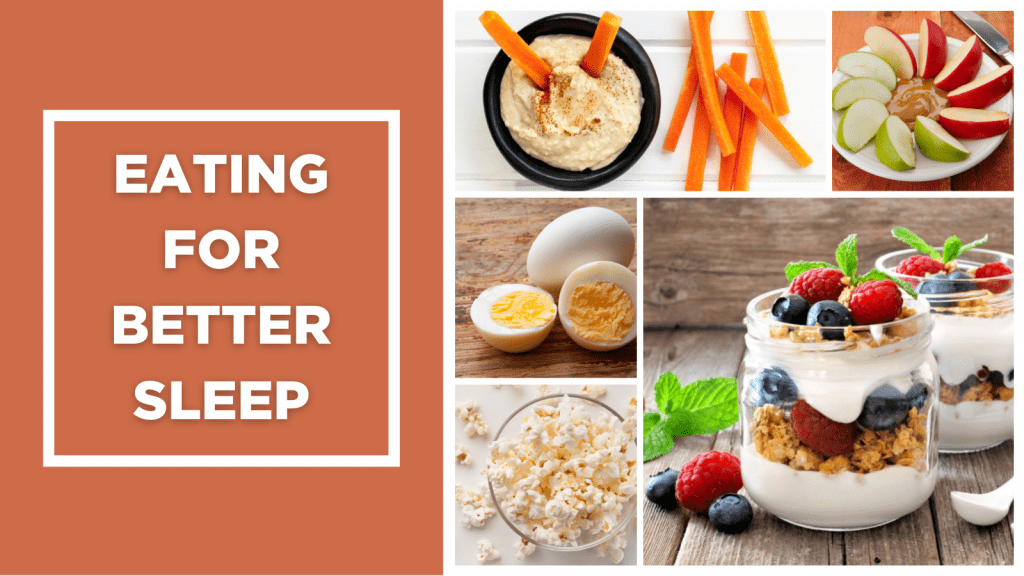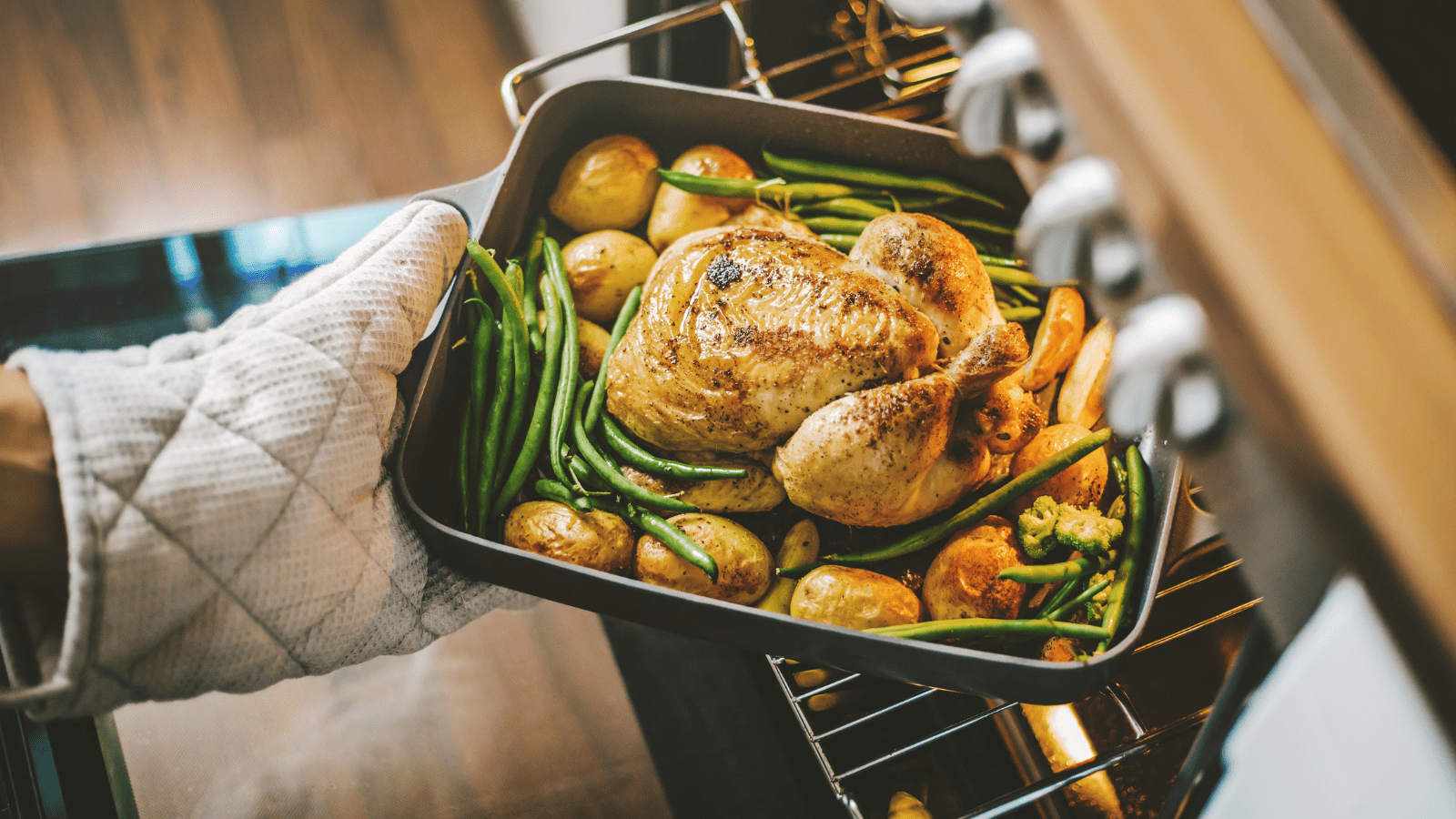
Eating for better sleep
By: Sarah Shpurko, dietetic intern at Hamilton Health Sciences
Current Public Health Agency of Canada sleep recommendations encourage 7-9 hours of sleep for adults ages 18-64, and 7-8 hours for adults age 65 and over; however, many of us are not getting enough. Shift work, busy schedules, stress and the environment we sleep in all play factors in whether or not we have a restful, restorative sleep.
Sleep hygiene is essential for our health

Sarah Shpurko, dietetic intern
Sleep hygiene (also known as healthy sleep habits) is crucial for our mental and physical health, as well as our quality of life and overall wellbeing. These healthy habits can also help us avoid sleep problems and disorders.
We can develop good sleep hygiene by:
- limiting screens before bedtime
- minimizing noise within the sleep environment,
- participating in regular physical activity and
- avoiding stimulants, such as caffeine and nicotine before bed.
Harms vs. helps
While these are great habits to adopt, bear in mind that there are also foods and supplements that can help (or harm) your sleep.
- Harms: Caffeine is a stimulant that remains in the body for five to six hours or longer. Because of this, most guidelines recommend stopping caffeine at least that same amount of time before heading off to bed. Coffee, black and green tea, dark chocolate and carbonated beverages are all sources of caffeine. Take time to learn which ones you should avoid because everyone responds differently to caffeine.
- Harms: Alcohol is a depressant that can disrupt sleep, so you might wake up more often or sleep lighter. Limiting or avoiding alcohol before bed can lead to a more refreshing sleep.
- Helps: Melatonin is a naturally occurring hormone that helps to regulate our sleep and wake cycles. Because our levels of melatonin gradually decrease as we age, many people turn to foods or supplements. Foods such as kiwi, eggs, salmon and tart cherries either contain melatonin, or have compounds that our bodies use to convert to melatonin; however, there is limited evidence that these foods may help increase melatonin levels. Additionally, although taking a melatonin supplement can help with sleep, as with any supplement, it is best to check with a physician before doing so.
- Helps: The Mediterranean dietary (MD) pattern, with its emphasis on fruits, vegetables, whole grains, fish, legumes, nuts, seeds and olive oil and other unsaturated fats, has been scientifically linked to better sleep in older adults. Additional evidence suggests that the MD can lead to improved sleep in those under age 75. Researchers have hypothesized that this may be the result of the high melatonin content found in grapes and olives, or the antioxidant and anti-inflammatory properties of omega-3 polyunsaturated fatty acids from eating fatty fish more often. The more relaxed Mediterranean lifestyle, characterized by longer meal times, could also be a factor.
Smart snacking before sleep
It is helpful to remember that consuming large meals before bedtime may cause discomfort, especially for those prone to heartburn or acid reflux. This is because lying down makes it easier for stomach acid to escape up the esophagus. Eating more than three to four hours before going to sleep can help.
However, for those who need a snack before bedtime, eating a small snack that consists of carbohydrates with fiber and protein can be an option to help stay full and comfortable through the night without disrupting sleep.



